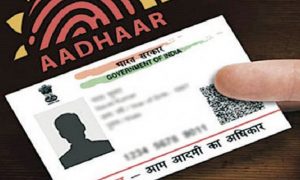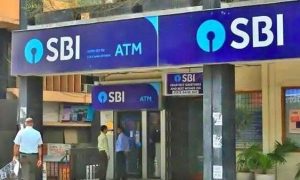The Centre has allowed the State Bank of India (SBI), in the XXIX Phase of sale, to issue and encash Electoral Bonds through its 29 authorised branches from November 6, 2023 (Monday) to November 20, 2023.
“The electoral bonds shall be valid for 15 calendar days from the date of issue and no payment shall be made to any payee political party if the electoral bonds are deposited after expiry of the validity period. The electoral bond deposited by an eligible political party in its account shall be credited on the same day,” a notification issued by the Finance Ministry said.
Read More: Shark Tank India 3: Edelweiss Mutual Fund CEO and MD Radhika Gupta Is New Shark
The Centre has said that the electoral bonds shall be encashed by an eligible Political Party only through a bank account with the authorised bank.
The notification further said the Centre has notified the Electoral Bond Scheme 2018 vide Gazette Notification No. 20 dated January 2, 2018, (as amended vide Gazette Notification dated 7th November, 2022). As per provisions of the scheme, electoral bonds may be purchased by a person (as defined in item No. 2 (d) of Gazette Notification), who is a citizen of India or incorporated or established in India.
A person being an individual can buy Electoral Bonds, either as an individual or jointly with other individuals. Only the political parties registered under Section 29A of the Representation of the People Act, 1951 (43 of 1951) and which secured not less than one per cent of the votes polled in the last General Election to the House of the People or the Legislative Assembly of the State, shall be eligible to receive the Electoral Bonds.
Read More: Govt’s swift onion price brake works, wholesale price drops to Rs 50
Electoral bonds are interest-free bearer bonds that can be issued with an intention of helping political parties with funds. An individual, company, or firm can purchase these bonds from SBI branches after giving the basic KYC details.
Introduced in 2017, electoral Bonds can be issued in the name of political parties registered under the Representation of People Act, 1951, and that have secured at least 1 per cent votes in the last State Assembly or Lok Sabha elections.
One of the clauses in the electoral bonds is the anonymity of the buyer of these bonds. This has become a big issue. Several pleas have been filed in the Supreme Court against these bonds. A Constitutional Bench of the Supreme Court, headed by CJI DY Chandrachud, is currently hearing the matter.
The five-judge Bench on Friday noted that the ultimate purpose of devising a scheme to sanitise the process of political donations is to reduce the infusion of unaccounted cash elements in electoral system, the need to encourage use of authorised banking channels, and bring in transparency.
The bench has reserved its order on the issue for now and has asked the Election Commission of India to produce updated data, till September 30, 2023, on contributions received by political parties through the electoral bonds scheme.





































